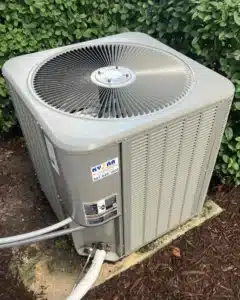Why Ventilation Is Essential in Commercial Buildings
Ventilation is one of the most important yet often overlooked...
As temperatures rise, the reliability of air conditioners becomes paramount for maintaining indoor comfort. A common question that often arises is whether air conditioners need to rest, akin to other appliances or machinery. In this article, we’ll explore the concept of operational cycles and discuss whether air conditioners benefit from periodic breaks or if continuous operation is the norm.
Air conditioners operate on a cycle-based system. The cooling process involves the absorption of heat from indoor air, its transfer to the refrigerant, and then release to the outdoors. This cycle repeats to maintain a consistent and comfortable indoor temperature. Each cycle consists of an “on” phase where the air conditioner is actively cooling and an “off” phase when the desired temperature is reached, allowing the system to rest until the next cycle begins.
Air conditioners are designed to handle continuous operation, and frequent on-off cycling can have drawbacks. Short cycling, where the system turns on and off rapidly, can lead to increased wear and tear on components, reduced energy efficiency, and potential temperature inconsistencies in your living spaces.
System Size and Capacity
The size and capacity of your air conditioner play a role in determining how long it operates before reaching the desired temperature. Properly sized systems are more likely to cycle effectively, whereas oversized systems may experience short cycling.
Thermostat Settings
The thermostat settings in your home dictate when the air conditioner cycles on and off. Setting the thermostat to a moderate and consistent temperature helps maintain comfortable conditions without unnecessary cycling.
Environmental Conditions
External factors such as outdoor temperatures, humidity levels, and the overall climate influence how often the air conditioner needs to cycle. In extremely hot or humid conditions, the system may run for longer periods to maintain the desired indoor environment.
Regular Maintenance
Well-maintained air conditioning systems are more efficient and less prone to issues that may lead to excessive cycling. Regular filter changes, coil cleaning, and professional inspections contribute to the overall health of your system.
Benefits of Periodic Rest Intervals
While air conditioners are designed for continuous operation, there are instances where short rest intervals can be beneficial:
Energy Efficiency
Allowing your air conditioner to complete a full cycle before shutting off can contribute to energy efficiency. Short cycling may lead to increased energy consumption and higher utility bills.
Component Longevity
Offering brief rest intervals between cycles can contribute to the longevity of components. Frequent on-off cycling may result in more rapid wear and tear, potentially leading to premature system failure.
Temperature Consistency
Longer operational cycles help maintain a more consistent indoor temperature. Short cycling may result in temperature fluctuations, causing discomfort and strain on the system.
While air conditioners don’t necessarily need extended periods of rest like some machinery, the focus should be on efficient and well-maintained operational cycles. Adequately sized systems, proper thermostat settings, and regular maintenance contribute to optimal performance and energy efficiency. It’s essential to strike a balance between continuous operation and avoiding unnecessary short cycling to ensure a comfortable and efficient cooling experience in your home.

Ventilation is one of the most important yet often overlooked...

In Florida, air conditioning is not a luxury. It is...

Many homeowners assume that central air conditioners pull fresh air...

Preventive AC maintenance plays a major role in keeping cooling...

Choosing the right air conditioning system for your home is...

Indoor air quality is a critical factor in maintaining a...